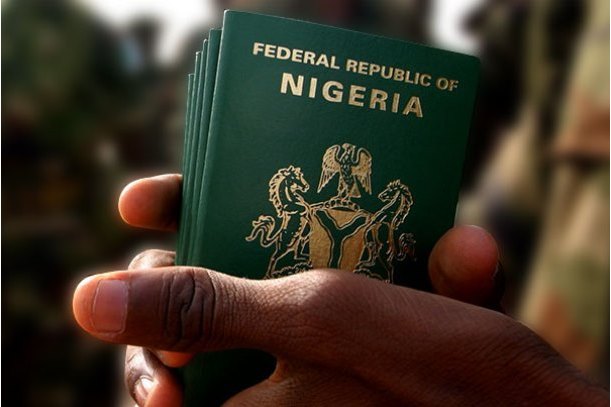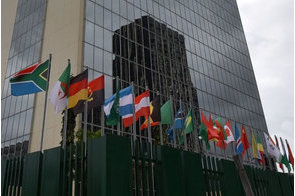Latest News
Nigerians may face int'l travel restrictions on rising Covid-19 cases

News Highlight
Countries will use epidemiological concerns as a basis to impose new immigration restrictions.
The Henley Passport Index (HPI) for the third quarter (Q3) of 2020 was released today showing that Nigeria retained its 97th position on the global ranking of the world's passports according to the number of destinations their holders can access without requiring a visa in advance. The new report shows Nigeria has maintained the travel freedom score of 46 destinations as was recorded in the report for Q2 2020.
However, in a statement sent to Financial Nigeria on Tuesday, Henley & Partners warns that as countries begin to reopen their borders after imposing travel restrictions to reduce the spread of the deadly coronavirus disease, rising cases of COVID-19 infections in Nigeria could affect the strength of Nigeria’s passport. According to the statement, countries will use epidemiological concerns as a basis to impose new immigration restrictions that could affect the international mobility of Nigerian citizens.
The latest HPI focuses on what travel freedom and global mobility will look like in a post–COVID-19 world. Stuart Wakeling, Head of Nigeria at Henley & Partners, said although it is too early to tell the full impact of the coronavirus on the Nigerian economy and the country’s global mobility, there are Nigerian passport holders who prefer to have certainty over their travel freedom and future global mobility.
“With the ease in restrictions, we are beginning to see more people paying careful attention to their own global mobility and evaluating their options for travel freedom and residence. They are considering destinations which have effectively handled the coronavirus outbreak, and especially those which are declared virus-free,” Wakeling said.
Last week, the European Union released a list of 54 countries that would be allowed entry into the bloc effective from July 1 based on health and safety criteria in its gradual reopening plan. Included in the list were Australia, Canada, Japan, and South Korea. Among the African nations on the list were Algeria, Angola, Egypt and Ethiopia. Egypt was among the African countries permitted to enter the EU despite having the second most COVID-19 infections on the continent, behind South Africa and followed by Nigeria in the third position.
Henley & Partners, a global citizenship and residence advisory firm, further said the status of Nigeria's passport strength would decrease should the United Nations Economic Commission for Africa’s (ECA) estimate of 122 million infections on the continent becomes a reality. As of Tuesday, there are nearly 500,000 coronavirus cases in Africa and a total of 11,698 deaths, and still rising.
In a move perceived as a stinging rebuke for their poor handling of the pandemic, the United States and Brazil were also excluded from the EU list, as well as Russia. According to Henley & Partners, the US passport usually ranked within the top 10 on the HPI prior to COVID-19 pandemic, with its citizens able to access 185 destinations around the world without requiring a visa in advance.
However, with the current EU ban, the US passport currently has roughly the same level of travel freedom as citizens of Uruguay, which ranks 28th on the index, with a visa-free or visa-on-arrival score of 153. Brazil has also dropped on the ranking from its pre-COVID-19 19th position to the same level as Paraguay (36th on the index, with a score of 142).
The new HPI also features reports from experts who say the COVID-19 crisis is likely to make international mobility more restricted and unpredictable in the longer term. The experts said in the post-COVID-19 world, travel choices would be driven by health considerations and economic security as more people seek to acquire alternative residence or dual citizenship.
Yossi Harpaz, Assistant Professor of Sociology at Tel Aviv University, noted that following the decision by the EU with respect to the US and other countries, “The passports of both developing and developed nations stand to decrease in value, at least temporarily. In such uncertain times, global demand for dual citizenship and investor visas is expected to increase.”
On his part, Wakeling said, “For investors and their families, having a second citizenship or an alternative residence is an even more precious asset than ever before, as concerns over access to first-rate healthcare, global mobility, and quality of life take on a new urgency.”
Japan retains its top spot on the latest index, with a visa-free or visa-on-arrival score of 191. Singapore also retains its second position, with its passport able to access 190 destinations visa-free. South Korea and Germany are in third place, each with a score of 189.
First released in 2006, the ranking is based on exclusive data from the International Air Transport Association (IATA), and enhanced by ongoing research by the Henley & Partners Research Department.
Related News
Latest Blogs
- What Ould Tah’s tenure at BADEA reveals about his AfDB candidacy
- Implementation strategy crucial for the success of 12-4 education policy
- A senator’s suspension threatens the right of representation
- Tinubu’s promising revolution in infrastructure development
- Has Tinubu’s economic reform started working?
Most Popular News
- Artificial intelligence can help to reduce youth unemployment in Africa – ...
- Nigeria records $6.83 billion balance of payments surplus in 2024
- Tinubu appoints new Board Chair, Group CEO for NNPC Limited
- Tariffs stir inflation fears in US but offer targeted industry gains ...
- Soaring civil unrest worries companies and insurers, says Allianz
- CBN net reserve hits $23.1 billion, the highest in three years









